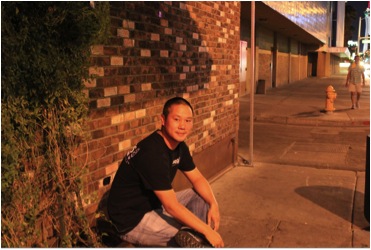Thursdays at the Huffington Post, Rana Florida, CEO of The Creative Class Group, will answer readers' questions about how they can optimize their lives. She will feature conversations with successful entrepreneurs and thought leaders about how they manage their businesses, relationships, their careers, and more.
This isn't your parents' world anymore -- its one constant is instability. We are staying single longer -- or "going solo" in the words of author Eric Klineberg's, and choosing to live alone. Traditional families have been replaced by all sorts of new forms of partnerships and parenting.
We change our jobs and even our careers in a heartbeat (or at the whim of the economy); more and more of us are launching our own businesses. Daniel Pink calls it the "Free Agent Nation". The entrepreneur Ben Casnocha wrote a book called My Start-Up Life. "Each of us," he wrote, "Is CEO of Me, Inc." No company can grow and thrive without a business plan.
Our teachers, counselors, parents, and professors didn't prepare us with a business plan that covers all the hiccups and pitfalls that will befall us; life, like any start-up, is full of risks. But what every successful entrepreneur learns is that the best business plans have adaptability and resilience built in; so when our life path suddenly swerves, we have to follow.
Send me your questions about work, life, or relationships at rana@creativeclass.com.
A conversation with Tony Hsieh, author/entrepreneur

Photo Credit: Jennifer Cornthwaite
This week's conversation is with Tony Hsieh, who started off as a newspaper delivery boy and went on to build one of the largest online companies in the world, Zappos.com. His New York Times bestselling book Delivering Happiness is also his company's mantra -- not just for customers but for his employees as well. My colleagues at the Creative Class Group and I were fortunate enough to see this first hand while consulting with Zappos in downtown Las Vegas.
Tony offers great advice for people who are not just looking for a paycheck but for a company that shares their values and offers work/life integration. Hsieh not only has a genius for business but a profound appreciation for the importance of place, culture, and creativity.
Q. Do you apply your management style to your own life?
A. I like to give people a lot of freedom and then see what they are able to do. For my own life, I also value the freedom to think outside the box and do things differently.
Q. What was your first job and did it equip you with important skills?
A. My first "job" was as a newspaper boy. It made me realize that I didn't want to spend my life delivering newspapers.
Q. How much does location affect a business model?
A. The physical location itself is less important than the location relative to other people. I think the closer employees are to other people with similar values they can learn from, the more productive and innovative they will be.
Q. How does your location help or hinder Zappos?
A. The initial draw to Las Vegas was the fact it's a 24/7 service town, and our culture at Zappos is very much about delivering great service 24/7.
More recently, we announced we will be taking over Las Vegas city hall for our new campus, and using the move as an opportunity to help revitalize the downtown area. Most tourists (and even a lot of locals) don't know about the Fremont East area of downtown, which has a culture that's completely different from what people experience on the strip, and fits well with our culture at Zappos. It's actually the most community-focused place I've ever lived, though it was just about the last place where I expected to find it. We think that the location of our future campus will definitely help us strengthen our culture.
Q. What are the key elements in motivating and inspiring a workforce?
A. Make sure that the company commits to values that match the employees' personal values, and make sure that the company has a vision with a higher purpose beyond just profits or beating the competition.
Q. What traits do you look for in your hires?
A. We look for employees whose personal values match the company's values:
1) Deliver WOW Through Service
2) Embrace and Drive Change
3) Create Fun and A Little Weirdness
4) Be Adventurous, Creative, and Open-Minded
5) Pursue Growth and Learning
6) Build Open and Honest Relationships With Communication
7) Build a Positive Team and Family Spirit
8) Do More With Less
9) Be Passionate and Determined
10) Be Humble
Q. What traits do you most value in your partners?
A. The same thing -- values alignment.
Q. Do you have to be an expert in the field to start a new business?
A. No.
Q. How do you maintain a work/life balance?
A. Rather than work/life balance or work/life separation, we focus more on work/life integration. That's why we encourage employees to be their true selves when they come to the office. This way, they end up forming real friendships, not just co-worker relationships.
Q. How important is creativity in business?
A. We think it's important. One of our core values is "Be Adventurous, Creative, and Open-Minded."

